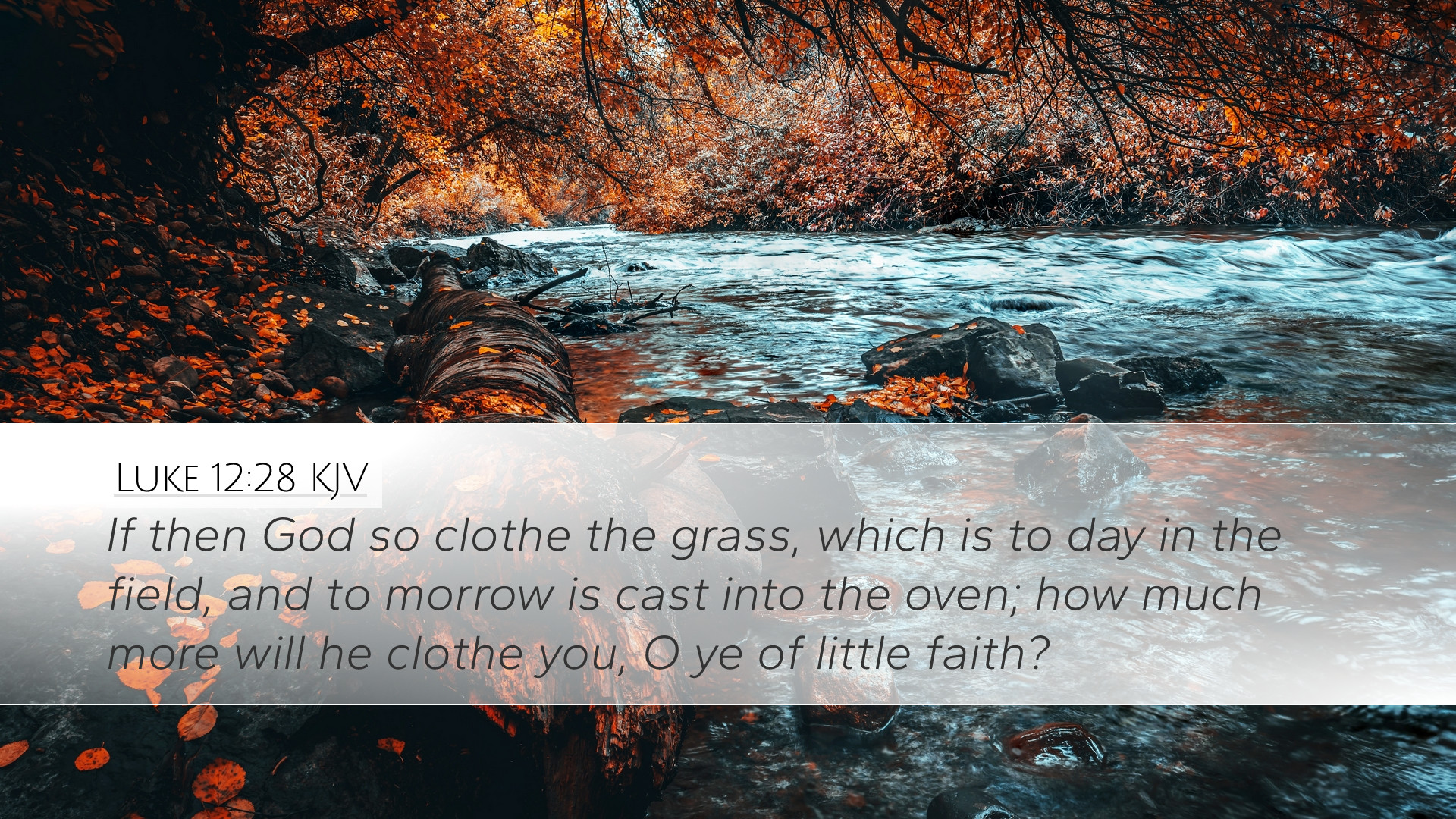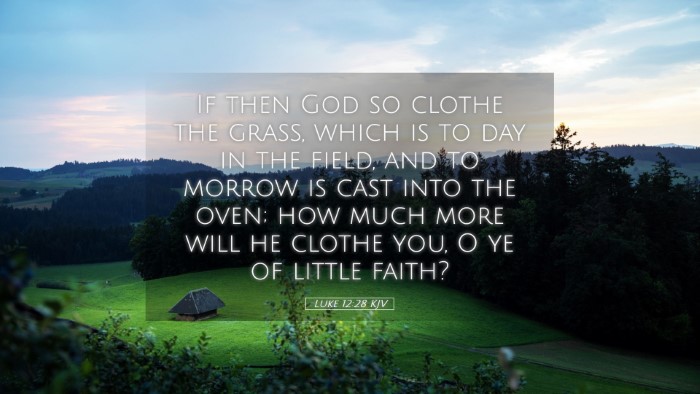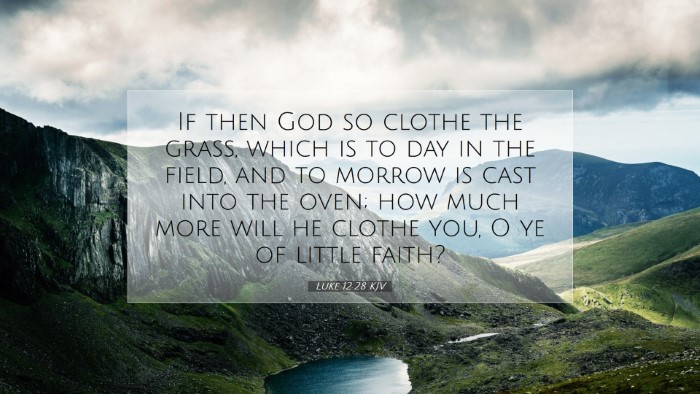Commentary on Luke 12:28
In Luke 12:28, Jesus makes a significant statement regarding the natural world and God’s provision:
"If then God so clothes the grass, which is today in the field and tomorrow is thrown into the oven, how much more will He clothe you, O you of little faith?”
Contextual Overview
This verse is situated within a larger discourse where Jesus instructs His followers not to be anxious about their material needs. He contrasts the anxiety of men with the care that God extends even to the simplest aspects of creation. This context is essential to understanding the depth of His teachings on faith and divine provision.
Theological Insights
1. God’s Care for Creation
Matthew Henry emphasizes that this passage reveals God's providential care not only for human beings but also for the lesser parts of creation, like the grass which is often considered trivial. He points out that if God provides for something that is temporary and transient, it demonstrates His much greater commitment to caring for humanity who is made in His image.
2. The Nature of Faith
Albert Barnes comments on the phrase "O you of little faith," showing it as a rebuke to believers who doubt God's provision. Faith here is not simply a belief in God's power but an assurance that He will meet the needs of those who trust in Him. This highlights a critical aspect of Christian faith—that it must confront and overcome anxiety.
3. The Transience of Life
Adam Clarke observes the metaphor of grass being "thrown into the oven," illustrating the brevity and ephemerality of earthly life. He concludes that understanding our place within this transitory existence helps to cultivate a perspective of reliance on God's enduring faithfulness rather than on the fleeting securities of life.
Practical Applications
This verse encourages believers to reflect on their reliance upon God amidst life's uncertainties. The following applications are vital for spiritual growth:
- Trust in Divine Provision: Believers are reminded to trust that God knows and provides for their needs more than they can comprehend.
- Prioritizing Spiritual over Material: The passage challenges believers to prioritize their spiritual lives over material concerns, focusing on the eternal rather than the temporal.
- Encouragement to Seek God: This scripture encourages the faithful to seek God's Kingdom first, thereby aligning their lives with His purpose and receiving His provision as a result.
Conclusion
Luke 12:28 serves as a profound reminder of God's sovereignty and provision, inviting believers into a deeper understanding of their relationship with the Creator. Through the combined insights of Matthew Henry, Albert Barnes, and Adam Clarke, we learn that faith involves recognizing God’s care, moving beyond anxiety, and embracing a life fully reliant on His promises.


